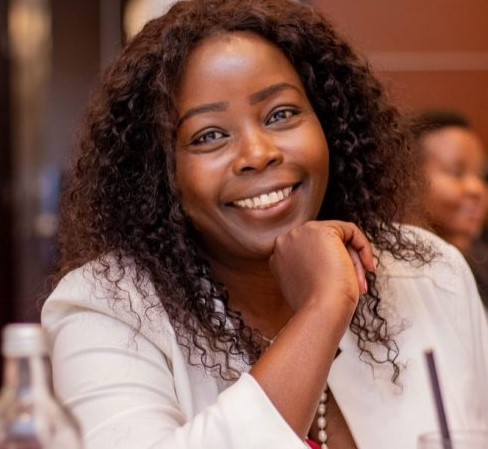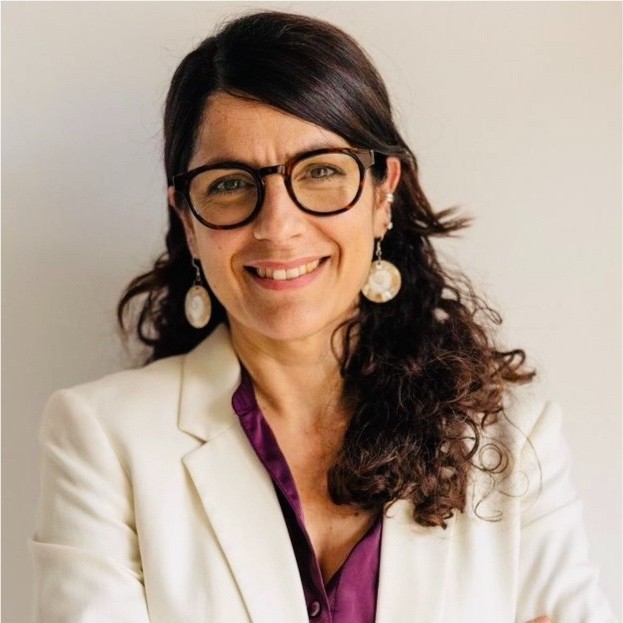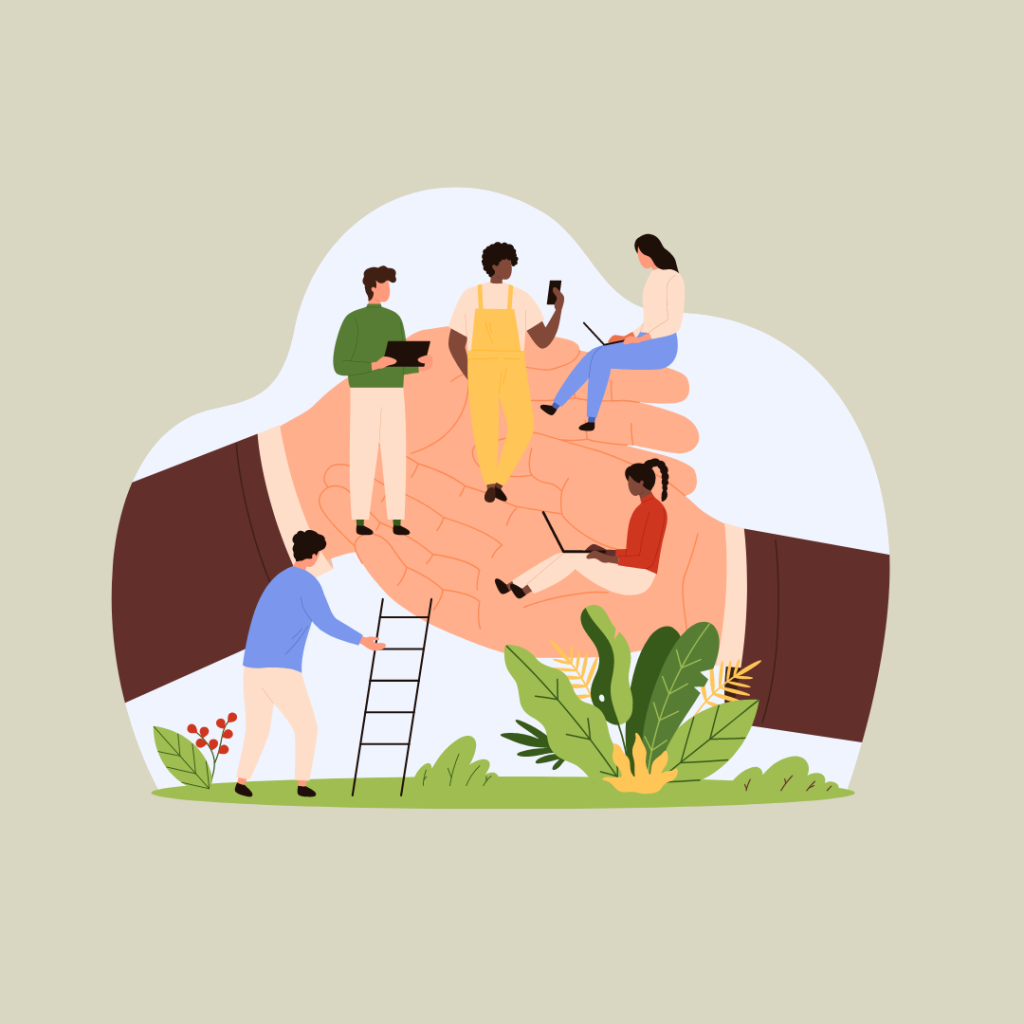9th October 2024
In this episode – part two of our deep dive exploration of humanitarian learning in 2024 – we continue the insightful conversation with passionate learning advocates Janet Nyaoro, Eleonora Aralla and Neba Ambe Azinui.
In the first instalment of this conversation, Humanitarian learning in 2024: perspectives from Africa, the trio discuss the nature of and trends in humanitarian learning and training, and share their own rich on-the-ground professional and personal experiences. Tune in if you missed it!
In this second episode, Unlocking potential: cultivating a culture of humanitarian learning, we dive into an inspiring exploration of learning as a powerful tool for growth for individuals and organisations.
The findings of the HLA Humanitarian Learner Survey 2024 build a picture of a highly motivated humanitarian workforce – yet numerous barriers stand in the way of the training and learning that they strive to achieve.
Our guests share their personal insights and tried-and-tested strategies for overcoming barriers to learning – including practical and actionable steps to supercharge our own learning journeys.
Together with host Ka Man Parkinson, our guests also offer their views on the key ingredients required to cultivate a culture of learning to fuel personal and professional growth within humanitarian organisations.
Tune in to this insightful conversation now available on Spotify, Apple Podcasts, Amazon Music and Buzzsprout.
About the speakers
Janet Nyaoro, HLA East and Southern Africa Regional Centre Regional Lead
With over 20 years of experience in the development and humanitarian sectors, Janet is a highly accomplished and results-driven regional programme lead known for delivering transformative capacity development programmes in diverse and challenging environments.
A champion of strategic partnerships and collaboration, Janet excels at driving organisational growth and fostering innovative solutions. Her expertise in designing and delivering impactful training programmes utilises technology and best practices to elevate learning and enhance programme outcomes, ensuring that teams are equipped to adapt and thrive.
Janet’s strong leadership abilities shine through in her commitment to empowering teams and promoting humanitarian leadership at every level of the organisation. Passionate about making a positive difference, she is dedicated to building the capacity of individuals and organisations to effectively tackle pressing humanitarian and development challenges.
When not leading impactful initiatives, Janet enjoys hanging out with her family and close friends, exploring local cuisine in various cities she travels to, reading, and finding strength in solitude time, believing that a well-rounded approach to life enhances her effectiveness as a leader.

Learning for me is just a fundamental human activity and it’s very continuous. It starts from the time you’re born, continues throughout your life. So whatever you’re doing, just know you’re learning. So the question is, what is it you’re learning? Is it something that you will add value to you?
Eleonora Aralla, Country Representative for CAFOD Zimbabwe and Eswatini
Eleonora has been based in Southern Africa for the last 13 years, covering various countries in the region in different roles. She is currently the Country Representative for the Catholic Agency for Overseas Development (CAFOD) based in Harare as well as the Chair of the Heads of Agencies Forum in Zimbabwe.
Eleonora is a vocal feminist advocate; she has focused in recent years on bringing gender justice to the core of CAFOD’s strategy, as well as on finding innovative ways to share capacities and promote learning across agencies, including through the co-founding of the Zimbabwe Alliance for Humanitarian Action.

We as individuals must be ready and open to making the most of any professional interaction. And I particularly think of women when I say this, we often concentrate as women on doing the job and getting it right. But I can just imagine a busy, overworked female colleague charged with responsibilities of care, being hesitant to engage in initiatives that might demand more of her time… But, really, to try and harness that feeling of self doubt and turning it around into something that fuels our curiosity and gives us the confidence to put ourselves out there to learn.
Neba Ambe Azinui, Project Coordinator, Grace Charitable and Rehabilitation Organisation, Cameroon
Neba is the project coordinator for Grace Charitable and Rehabilitation Organisation (GRACARO), an organisation which promotes and supports access to education for affected children in the conflict-affected Northwest and Southwest regions of Cameroon since 2018. Before joining GRACARO, Neba worked for over seven years as a secondary school science teacher.
Neba recently completed a master’s degree in Education, International Development and Social Justice under the competitive UK FCDO Commonwealth Scholarship in the UK. He has also completed numerous project and development-related courses on the Humanitarian Leadership Academy platform, Kaya.

I encourage everyone to take up a learning opportunity whenever they find one, because the knowledge will always come back to serve you, even with interest. And particularly for those in the humanitarian and development sector, you don’t know where the next need for your services will be, and it is good that you prepare yourself before that time comes.
Ka Man Parkinson, HLA Communications and Marketing Advisor
Ka Man is Communications and Marketing Advisor at the HLA. She has served in communications roles in the international education and nonprofit sectors for the past 18 years, and is a firm believer in the transformative power of education, global opportunities and lifelong learning. At the HLA, Ka Man leads on the creation of digital content, and manages the HLA’s podcast and webinar series. She is based near Manchester, UK.
Bonus content: companion microlearning guide
Pressed for time? Read our quick microlearning guide for practical steps and actions you or your organisations’ leaders can take. This content has been adapted from insights offered by Janet Nyaoro in this podcast episode.
Why not put learning on the agenda and use this content to spark a discussion with your colleagues?
8 ways to cultivate a culture of learning in humanitarian organisations
View our microlearning guide with a quick summary of key takeaways from this discussion
View the guide
Share this episode and connect with us
Did you enjoy this episode? Please share with someone who might find it useful!
Feedback/enquiries: Please email info@humanitarian.academy or connect with us on social media.
The views and opinions expressed in our podcast are those of the speakers and do not necessarily reflect the views or positions of their organisations.
Episode transcript
[Music]
Ka Man: Welcome to Fresh Humanitarian Perspectives, the podcast brought to you by the Humanitarian Leadership Academy.
Welcome to the second instalment of our podcast discussion together with three passionate advocates of humanitarian learning: Janet Nyaoro, who’s the HLA’s Regional Lead for East and Southern Africa, Eleonora Aralla, who’s the Country Representative for CAFOD Zimbabwe and Eswatini, and Neba Ambe Azinui, who’s a project coordinator for Grace Charitable and Rehabilitation Organisation in Cameroon.
If you tuned in to the first part of this discussion, welcome back! If you’ve not had the chance to tune in yet, I highly recommend that you listen to part one, where we explore the landscape of humanitarian learning in 2024, with a special focus on Africa.
Today we’re diving into what keeps humanitarians motivated to learn and grow. Our guests will share invaluable insights, tips and strategies for staying engaged with humanitarian learning, and we’ll explore the key ingredients for fostering and organisational culture that supports everyone’s learning goals. So join me as we continue the conversation with our three brilliant guests – and get ready to be inspired on your own learning journey.
[Music – voiceover]
The insights of our Humanitarian Learner Survey, 2024, conducted earlier this year, built a picture of a global humanitarian workforce with high levels of motivation to learn and upskill for the benefit of their current roles and future endeavours.
Despite this, many barriers stand in the way of humanitarians to undertake this learning and training that they desire. Around 1/4 of respondents said that the main barriers undertaking learning and training is a lack of affordable training opportunities. Busy schedules were also cited as a barrier as well as a lack of support from their organisation.
Ka Man: So, Janet, coming to you first. Drawing on your experience as a seasoned humanitarian trainer, would you be able to share any advice for our listeners on ways to overcome these types of learning, challenges and barriers that they may face?
Janet: Yes, thank you. Barriers are usually they are in life, and I think the best thing is then how do we overcome them so that we achieve. It should not be used as an excuse. But I think those are the things that give us lessons.
So when it comes to learning. I think one of the barriers mentioned was about time. The aspect of time being critical, it takes time. You need to invest your time in learning. And there is big percentages of people who start and never finish. So how do we navigate that barrier? I think one of the first thing that desire to learn has to be very high, and I think we have Neba here has proved that where there is a will, there is a way. When you have that desire to learn something, then a way will be created for you to overcome any barriers that come on your way.
The next thing is about ruthless prioritisation, guarding your time. If it is important for you to learn, then you have to prioritise and put time aside for learning. When I was a mentee to some of the groups of people who are doing online learning and they’re falling behind and it’s like ‘I’m busy, I’m busy’. I’m like, ‘guard a particular time’. Either it’s in the morning or later tonight and put it aside so that you can actually learn. So you have to set up a specific time, honour that time, and learn.
For me personally for them, many years I used to set aside Friday afternoon, cause Friday, anyway, the weekend was coming, I never was interested in work. So I used to put it aside to learn. So you’ve got to set a time where you can learn and finish what you start, to stop procrastinating.
When it comes to costs, I think I’ll to some extent I hope there will be time to talk about the organisation aspect of it, so I will not delve on it here. Here I’ll delve on things that a learner has control over, you have control over your time. You have control over seeking support, for example scholarships, especially for face to face programmes. There are several of them in the humanitarian sector in the development sector, there are scholarships that are available and they can enable you to even interact on face to face learning.
If you connect with the right people who have access to some of these resources so that can solve the problem of the cost and affordability and access, because then you are able to attend specific programme.
But also it’s important to look at learning as an investment that yields you and your environment results. As you say, there is impact once you learn, so you take it as an investment and give it the importance that it deserves.
So I think I’ve mentioned some of these two. The rest when it comes to the organisational parts, I think I’ll get a little bit of time to just talk about the organisational culture and I think I’ll delve on the organisational environment that can support learning. So for now, let me, I’ve focused on the learning himself and the things they can control.
And just to summarise, prioritise. Make it like a big motivation factor, have a plan, and then at the end of the day seek support and look for opportunities that can enable you to learn, and get scholarships if there is no money.
But I’m sure also there’s some humanitarian workers with money, invest in that money to an education. If there is a small fee, you’re required to pay, or to co-pay, it’s a good investment. So do it so that you are able to learn. And I’m sure that then can enable us to collectively have a win-win scenario. Thank you.
Ka Man: That’s brilliant. Thank you so much, Janet. Coming to you, Eleonora, do you have any advice or suggestions of strategies to incorporate learning into your routine, and perhaps ways that people can advocate for that time and space to do so from their organisation?
Eleonora: Thanks. And Janet, I love your practical suggestions. You know to block time, I think even just physically blocking it in your Outlook calendar is a good strategy to make sure that you know you remember that that is a commitment to me as a manager and a manager of managers.
As soon as I onboard new people the first question that I always ask is. How can CAFOD help you grow? What would you like to learn that will help you be a better professional in your role but also better position yourself for growth within and outside the organisation. CAFOD has extremely intentional policies around learning and I really try to make sure that this trickles down onto you know the day-to-day processes – the objective settings, their performance development reviews to support teams for growth. I think the key is to keep it consistently on the radar in meetings in one to ones, in teams engagements, to ask ourselves, is there a way that we can learn whilst we’re engaging in routine tasks and processes.
And to all NGOs staffs, I really say demand this from your managers, put learning in your objectives. I always ask my team, you know, and remind them, please call me out if this is slipping from my radar cause professional life tend and priorities tends to tend to come in the way, but this is not optional. It is a duty of organisations to put their employees in the best possible position to deliver their work.
And especially to female employees, I really say ‘don’t be afraid of asking’ because I think if our people leave without having learned and having grown, we will have failed as managers and as an organisation.
Ka Man: I love that. Thank you, Eleonora. Maybe everyone can, like, take the sound bites that you and Janet have just shared and, like, play that in a team meeting or something. I think that will really galvanise people into action. Thank you so much.
So Neba, you’re, as you’ve outlined, a very committed learner. So for example, as you’ve mentioned, you’re a Commonwealth Scholar, which meant that you successfully applied for a very competitive scholarship to enable you to undertake postgraduate studies in the UK, and I know this is a huge achievement.
So I wondered if you could briefly share maybe some of the key points or types of messages that you made to demonstrate your high level of commitment to learning in order to secure this this scholarship?
Neba: Thank you, Ka Man. I think what has brought me up to this point has been the commitment, as you mentioned and the urge and the self motivation to learn and become better in what I do.
And maintaining continuous learning from you as necessary as I did not have prior knowledge in the sector and I needed to deepen my understanding and develop the necessary skills to serve better, and this was my primary motivation.
While working, I dedicated extra hours to learn the different aspects of humanitarian work which I was facing during this week when I was working, and I also needed to communicate with other experts and other workers on the field effectively, so knowledge about these areas was very important.
I looked for free online courses and resources to be able to support my work, and when I found Kaya because I have mentioned that is the primary learning platform that I used for my humanitarian learning.
I was particularly amazed at the extensive catalogue of courses which really fit well with my work, and these courses were very easy to follow since the courses were self-paced, I was able to pick up from wherever I left off.
And this flexibility meant that I was not under enough pressure to meet deadlines while learning some of these courses. Although this has a downside because the laxity can cause you to fall off along the way.
I used Kaya to upskill and this helped me to perform better within my work and I was able to capture this learning as well as my work experience, which was improving significantly when I started this, I was able to capture all of this in my application for the Commonwealth Scholarship.
And I was also able to sell that, having been able to do independent learning even under very challenging conditions, I was one of the candidates to take up more learning opportunities or even more challenging opportunities of learning, which you know, was to be presented in the Master’s course that I was thinking.
The courses were very crucial, I must say, in making me work effectively, as a starting point especially as I was starting as a novice. And secondly, it gave me a deeper and wider understanding challenges across the humanitarian and development sector, which pushed me to seek more knowledge. I was able to communicate this and thankfully I was able to convince the Scholarship Commission, so was able to commence my studies in Education, International Development and social justice in the UK.
None of this would have been possible without taking the first steps in learning online and implementing what I learned in practical realities, which I was facing in my in my work and the learning resources on Kaya, and project management for NGOs, Disaster Ready – these different platforms kind of supported my through working and then through the school.
And it filled a significant learning gap and shortened my learning curve because if I were to take off time, I wouldn’t have been working and then learning at the same time. But since I could do them concurrently, it was it was really time saving.
And even up to completing my Master’s course because it will feel very relevant because the content matched well, with what I was studying in my Master’s level and that also helped me to come out with excellent results in my Master’s.
So it’s a chain which started with taking the courses and then it has been in my work and through my continuous learning n the UK and even now, I think I am better grounded now to combine the advanced knowledge that I’ve learned in the MA and then with the work that I am currently doing now for greater performance and more effective intervention in my work. Thank you very much.
Ka Man: That’s amazing, Neba so inspiring to hear. You’re such a tenacious learner and you know you’ve just sort of seized these opportunities, building on your professional experience and this informal learning to sort of build a pathway to this formal competitive study. So that that is no mean feat and it’s a really inspiring journey and I’m sure we’ll be inspiring many of our listeners out there. So thank you very much for sharing that.
[Music]
Now the survey findings highlight the importance of organisational support. Cultivating a culture of learning within humanitarian organisations is crucial, which could include encouraging diverse training formats, allocating time for learning and providing broader training opportunities.
Ka Man: So coming to you first, Janet, what do you think are some of the most important factors to cultivate a learning culture within humanitarian organisations? What do you think about that?
Janet: Thank you. And I remember the other conversation we were having about barriers to learning and I said there are those things that people can control at a personal level. Then there are others purely dependent on leadership because I think one of the findings is that people don’t feel supported to learn and the environment that is not suitable for it. So I have a lot to say here, so I’ll try to summarise because as I said, I’m moving towards more leadership and supporting organisations to be able to do this. So I’ll try and at list how many. I have several factors. Yeah. As we move along, let me see what’s important.
But I think number one is leadership commitment. I think the role of leaders is very important in modelling learning behaviours, active participation, so that learners can be able to have that environment.
Leadership commitment means there has to be a vision for learning within a particular organisation and Eleonora, I think has specifically said she asks people, what is it that you want to learn come forward. Establishing that vision and people knowing that they will be supported is very important, and this vision should be communicated to staff from the very beginning for them to know that they are an integral part of improving an organisational performance and their learning is very critical to it.
The other is very easy. Just encouraging open communication so that and feedback so that people can talk without retribution. Because learning is not just about training, it’s about being at the work and being in dialogue, being encouraged, regular feedback mechanisms. I think these are very important to have that culture of learning.
Eleonora also mentioned aspect of diversity and just having those diverse voices, the women participation. So I won’t repeat that. Go back to what Eleonora said. I think that was very critical and useful.
The other one I think is just having that continuous professional development plan for people at individual level at organisational level. There is a lot of changes within the humanitarian sector – whichever sector you work and we come up with new strategies and these new strategies require that people keep up to date to be able to support these strategies so that continuous development, so that people can keep up with the trends, can keep up with the strategic plans, I think then can help develop an organisation or culture where there is training opportunities, development opportunities so that people can learn new practices, new technologies, response strategies for us in the humanitarian sector so that they are able to do that.
Access to knowledge and resources because learning is not just, as I say, about training. People need to access resources, so there have to be a knowledge management system within the organisation. There has to be a system where people document successes. People document lessons so that new people come, they find some knowledge, they don’t have to reinvent the wheel and start from scratch. Yet people already had that prior knowledge so there has to be culture where people share this knowledge. They share their experiences, they share their best practices and aside from that a toolkit, a space where there is repository of knowledge and resources and people can easily upload. And I think this can include those online resources.
When you go to Disaster Ready for example, it’s not just about training, but there are some guidelines, tools that someone can easily upload. Save the Children I think we have a lot of tools. Sometimes we just haven’t quite figured it out, especially how to share with our partners because a lot of guidelines are available. People have developed brilliant tools, but they are sitting in our SharePoint. So I think for us it’s also a challenge to find ways to ensure they are accessible, especially to other people who don’t have access to the system.
Another thing is the encouragement of innovation and experimentation so that people can try and fail and learn. So that recognition of innovation, I think is very important to for learning culture.
Coming up with structured reflection spaces, debrief session, storytelling so that people can learn from that.
Coaching and mentoring – just making sure that people who are less experienced can be coached by people who are more experienced and coming up with such a programme. In Save the Children we are coming up with across, even within HLA, mentoring and coaching is now becoming an integral part of our programme and we have a pool of skilled coaches and we are trying to match them with less experienced people, even if you don’t work within Save the Children so that they are able to learn from them, to be mentored by them, to be coached by them on any area that they want to learn.
And I think it’s important for leadership and that organisational level to just monitor how are these learning initiatives going on, regularly evaluate if this the learning initiatives you set up are really improving performance. So it goes back to feedback so that people improve on how they learn. So, thank you. I think I can have a whole podcast on this again, but let me stop there. Thank you, Ka Man.
Ka Man: Janet, that was amazing. I really love your style. You’re like this is it – I’ve got these practical points here. You know, this is this is how we could do it. You’ve got a road map there, you’ve created that for organisations. As you were speaking, I was thinking I need to actually transcribe what you’re saying here and provide that as a handout to accompany this podcast because it was at there’s so many rich ideas and suggestions there. So yeah, that would be a useful tool. So thank you much Janet. So Eleonora coming to you. I wondered if you have any thoughts on any kinds of learning initiatives, whether these are like major schemes or just relatively small steps that humanitarian organisations could undertake to support their employees or volunteers to fulfil their learning goals. What are your thoughts on that please?
Eleonora: Thanks Ka Man, and I was fascinated by your question around culture, and that could elicit another very philosophical answer, but I’ll try to keep it quite practical and giving you an example from southern Africa and Zimbabwe, particularly where we know that despite the current dire humanitarian situation. You know the resources for the response have been dramatically shrinking and to give you an idea, Zimbabwe is going through the worst drought of the last 40 years and investment has been really, really low for humanitarian response.
So, against this context, CAFOD came together with other eight quite the key INGO’s operating in the country. Namely, these are GOAL, ACF, IMC, World Vision, Plan, MSF, Trócaire and WHH. And we co-funded the Zimbabwe Alliance for Humanitarian Action, now one of the main intentions of pulling together this group is to share tools, approaches and methodologies to increase our collective impact in light of the fact that there are a lot less resources available to respond to humanitarian crisis.
So interestingly, the alliance, you know as opposed to the your usual classic consortium does not exist with the primary aim of mobilising resources, but the primary purpose, is to enhance humanitarian impact through learning as well. And one of the key principles and commitments that fuel the network is the recognised need for sharing learning to broaden our impact.
We have linked with other similar existing initiatives globally and regionally. The likes of, for example, Alliance 2015, as well as the BRICS Consortium in Somalia. To learn ourselves how to do this well and how to maximise on each other’s knowledge, we provide also a platform for our respective technical teams to share programming ideas, information, tools, methodologies which also affords opportunities of learning by doing and learning on the job for our people as well as our local partners.
And I would really like to think of this as a mini revolution, because I think we mustn’t forget that often, as I said at the beginning, our environment is dominated by sheer competition for scarce resources, so putting organisations one against the other normally including the local ones. And so for me, it takes courage to get together like this because it means, you know, becoming vulnerable, exposing our own gaps and you know, be ready to recognise them. And really, this kind of humanitarian learning takes a major mindset shift.
And I want to think that we are coming together in this initiative and more broadly not to outdo the others, but we learn to be better together. And I believe that ultimately we gain much more than we could potentially lose coming together to learn.
Ka Man: I love that. I like that reference you made to a mini revolution, but it’s a recurring theme in what you’re talking about, Eleonora, about this need to collaborate and pull together the scarce resources that we have of because the situation, the global context necessitates it. So thank you for making that very, very central there. Yeah. Thank you. And and finally, coming to you, Neba, just taking a slightly different tack to this, if you could create a humanitarian organisation in your region from the ground up that has an excellent culture of learning, what would that look like to you, and what kind of things would the organisation do to enable and support individuals and their learning goals? So I know that’s a pretty big question, but just what would be your sort of top few wishes, so to speak?
Neba: Thank you, Ka Man. I think Janet has outlined the most effective strategy, which I would like to implement if I were to build an organisation from the ground up, with regards to and supporting learning, but just a few things to add.
I think it starts from the recruitment process, potential recruits should be able to complete courses that this kind of demonstration of their willingness to learn. And these courses should be relevant to the field or potential aspects which they will be facing with their job descriptions, so it will be an expectation that for newly recruited person you should be able to take several courses self driven courses to demonstrate your ability and your willingness and commitment to continuous learning.
I think there will be room for continuous learning opportunities within the organisation through possible quarterly or by annual refresher courses, and there will be incentive for employees or members of the organisation to take up more learning courses. This will be to ensure that they are addressed with the changing environment of the humanitarian setting, getting new information and doing things in new ways.
The leadership of the organisation also will set the pace, they will be the ones to show that learning is part of the culture of the organisation by themselves taking up learning courses and encouraging other members of the organisation to take up learning as part of the workload or part of the activities that normally take place in the organisation.
And time will be allocated there for learning. Sufficient resources will be allocated to support learners or employees in their progress through the organisation. There will also be room for study leaves or day offs where workers can sit for exams, additional courses to inform that they are not left behind knowledge wise and they will be active search for these learning opportunities. If there is maybe a new course that came up, there will be encouragement for their respective and relevant members to take up those courses.
So yeah, adding to what Janet said, I think it’s very important that the culture is cultivated from the start of someone joining the organisation and they are supported through the organisation in their learning effort in their progress. This is really what I think will support the learning and within organisations. Thank you.
Ka Man: Amazing, thank you, Neba. As you were speaking, I was, again Janet’s wonderful ‘PPI’ – people, process and impact – sort of came to mind again, ‘cause that kind of reflects what you’re talking about, ensuring that learning is embedded right from the start of the recruitment process and is structured into the employment process. So thank you very much for sharing that.
Wow, what a conversation we’ve had! It’s been very wide-ranging, covering all aspects of organisational culture, personal, professional development, wow, wider economic landscape, all very multifaceted. And honestly, I could continue this conversation, but we’ll draw this to a close now.
So a huge thanks to our brilliant guests, Janet, Eleonora and Neba – thanks so much for your ideas and insights. And yeah, it’s been so inspiring to hear you speak. You all have so much energy, dedication and commitment to learning, which I’m sure has inspired our listeners today. So a huge thank you. I just wondered if you’d like to add any closing remarks before we wrap up. Eleonora may be coming to you first?
Eleonora: Thanks. I’ll be very brief and I’ll go back to you know, I firmly believe that learning is a duty for employers. I think that we as individuals must be ready and open to making the most of any professional interaction. And I particularly think of women when I say this, you know, we often concentrate as women on doing the job and getting it right. But I can just imagine a busy, overworked female colleague charged with responsibilities of care, being hesitant to engage in initiatives that might demand more of her time. And I do understand that at a very personal level. But, really, to try and harness that feeling of self doubt and turning it around into something that fuels our curiosity and gives us the confidence to put ourselves out there to learn.
Ka Man: Amazing. Thank you Eleonora. And coming to you, Janet, would you like to share any closing remarks?
Janet: Yeah. Thank you. So maybe just to conclude that learning for me is just a fundamental human activity and it’s very continuous. It starts from the time you’re born, continues throughout your life. So whatever you’re doing, just know you’re learning. So the question is, what is it you’re learning? Is it something that you will add value to you? It’s not just about a classic process of coming for a course. We see some people hopping from one training to another. Anything you do is about learning, so I think that can help us with prioritise our time. Then we can learn.
Then as far as the organisation is concerned, I think leaders, I think it’s important that we cultivate that culture that allows for people to utilise their time well in their daily practices, prioritising a supportive environment and open communication and resources so that people can learn.
And for us here we are here to support any learning processes and if you are listening to this and you have any learning concern, you just teach out to any organisation within the humanitarian sector and it’s a conversation that we would love to continue with. Thank you.
Ka Man: Wonderful. Thank you so much, Janet. And how about you, Neba? Do you have any closing remarks to share?
Neba: Thank you. I just wish to say that the resources that are out there are outstanding and very wide-ranging and I encourage everyone to take up a learning opportunity whenever they find one, because the knowledge will always come back to serve you, even with interest. And particularly for those in the humanitarian and development sector, you don’t know where the next need for your services will be and it is good that you prepare yourself before that time comes.
And the best way to prepare will be to continuously learn, continuously take on new avenues of challenging yourself to become better and whatever takes your interests, even to ensure intersectional interaction, intersectional sectoral interactions, these courses will really serve you well and place you in a very good footing when it comes to your career, when it comes to your personal work and your professional development. So take up every opportunity you have and visit the platforms like Kaya and Disaster Ready, PM for Project Managers. And all of those resources will serve you in the long run.
Ka Man: That’s brilliant. Thank you so much, Neba. And also, thank you, Janet and Eleonora, honestly, so inspiring hearing the three of you speak so passionately about learning.
So if you want to read more about our learner survey findings, visit the HLA Resources for top level insights. And if you’re interested in more articles, content, discussion on this topic, let us know. I’d be delighted to explore this further.
And as Neba says, if you’re a humanitarian looking to boost your skills, be sure to check out our free resources on platforms like Kaya, so that’s kayaconnect.org.
And perhaps taking guidance from Eleonora and Janet, you can think about how you can integrate different forms of learning from small to large into your own schedule. Like I say, even if it’s just a small step.
And if you’re a people manager, please again take the advice of Janet and Eleonora to consider how you can support your teams by carving out time for learning and providing access to key training opportunities like Neba has also advocated for, so we hope that this podcast discussion has inspired you with some practical ideas and possible approaches.
So that’s all from us today. I’d like to thank our three guests again for this really insightful conversation.
And thanks to our listeners for joining us for today’s episode of Fresh Humanitarian Perspectives from the Humanitarian Leadership Academy.



